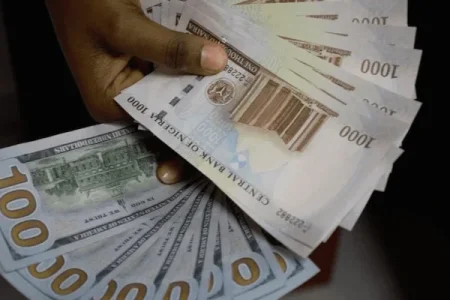
On August 14, 2024, the naira experienced its first loss after a period of gains due to a drop in external reserves and decreased dollar supply. The naira fell by 0.70% at the official market, while it appreciated on the parallel market. External reserves declined to $36.620 billion.
On August 14, 2024, the naira saw its first decline in value after a period of appreciation, primarily due to a reduction in external reserves. The Central Bank of Nigeria (CBN) had initiated retail dollar sales to banks, contributing to the naira’s 0.70% depreciation at the official foreign exchange market. The dollar was quoted at N1,582.09, down from N1,570.99 the previous day, according to FMDQ data.
Despite this, the naira gained 2.47% on the parallel market, closing at N1,598/$, compared to N1,600/$ the previous day. However, dollar supply to the market dropped by 18.26%, falling to $201.43 million from $246.44 million.
Nigeria's external reserves decreased by 0.68%, dropping from $36.872 billion on August 7 to $36.620 billion on August 12, 2024. This decline follows a rise to $37.88 billion by mid-July 2024, suggesting challenges in sustaining recent stability.
Bala Moh’d Bello from the Monetary Policy Committee emphasized the need for continued exchange rate stability to manage inflation and import prices. CBN Governor Olayemi Cardoso stressed the importance of monitoring forex market developments to maintain stability and attract capital flows. Despite recent efforts to stabilize the market, the naira’s performance reflects ongoing challenges in the forex sector.
In response, MPC member Lydia Shehu Jafiya noted improved foreign exchange inflows and relative market stability, though Mustapha Akinkunmi highlighted the naira's recent depreciation against the dollar.




